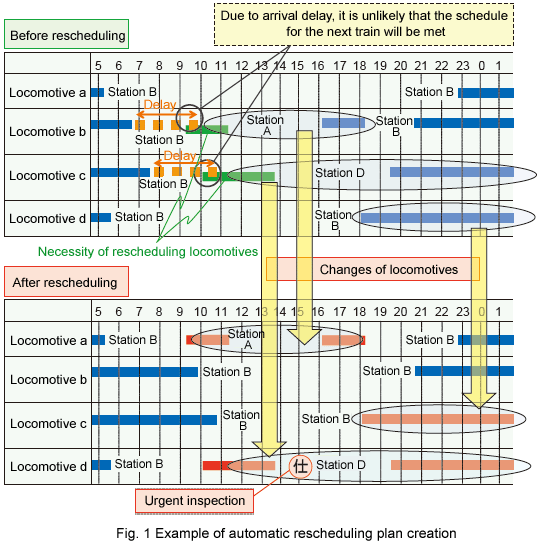As freight trains operate over long distances through different areas, they are susceptible to large-scale timetable disorder caused by transport disturbances in a particular region. In such situations, trains are delayed or cancelled as necessary, which requires changes (i.e., rescheduling) for the locomotives allocated to them. Such work has so far been performed manually by those in charge, and there is a need to reduce the workload and make a quicker rescheduling for the disruptions.
Based on adjusted timetables associated with disruptions, the RTRI developed the Automatic Locomotive Rescheduling Plan Creation System based on mathematical optimization that reassigns locomotives to trains while meeting constraints such as the tractive power required for each train and the requirement of locomotive inspection in every 3 or 4 days (Fig. 1). In the system, different rescheduling plans can be created for the same adjusted timetable for comparison. This is done by changing the importance weight of criteria in the rescheduling, such as reducing the number of times rescheduling and avoiding urgent locomotive inspection as many as possible.
For a section with over 250 freight trains running (timetable disruptions would occur for about 50 of these) and a three-day goal of locomotive scheduling recovery, a rescheduling plan was obtained in about 90 seconds using a PC.
An overall rescheduling support system can be built by combining this system and the already-developed automatic rescheduling plan creation system for drivers.
|

